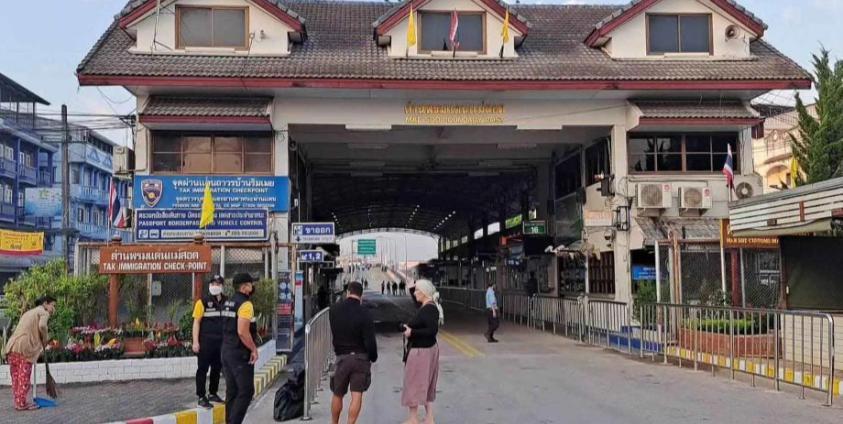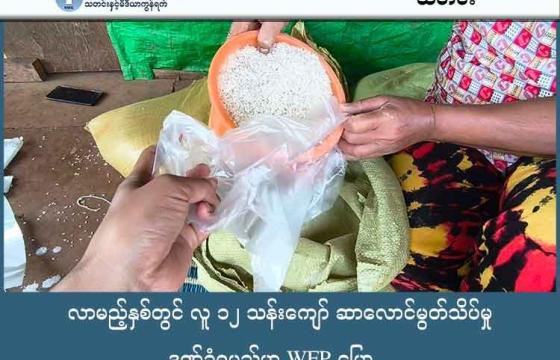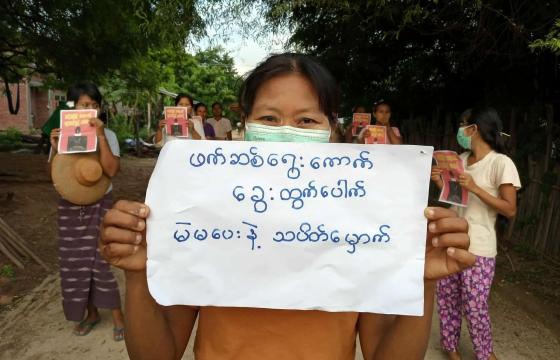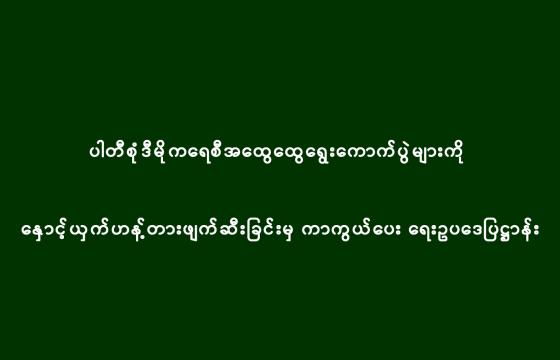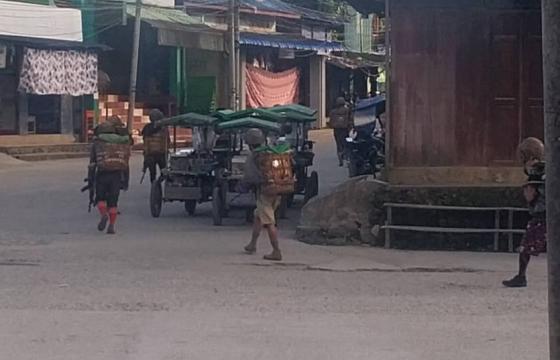Migrant workers in Thailand’s Mae Sot Town on the Myanmar border are increasingly turning to informal police protection to keep them safe, rather than official permits.
Rather than getting official Certificate of Identity (CI) cards from the Myanmar government and work permits, which are hard and expensive to obtain, more and more migrant workers in Mae Sot are relying on instead paying the police a monthly fee of 300 Thai baht to keep them safe.
Ko Pyae Phyo Kyaw, a representative from the Yaungchioo Labour Organisation based in Mae Sot explained how the system works.
He said: "Currently, temporary residency permit cards issued by Thai authorities, commonly known as police cards, are available in the area. This is a temporary holding pattern for individuals who do not have legal documents. For example, if you want to make this card, you have to give two photos, a name, and an age. You'll also need to pay 300 Thai baht, and then they'll give you a list of phone numbers for a month. If they get arrested by the police, they need to call those numbers. The phone operator will inform the police that the individual has paid their taxes. So, the arrested individual will be released based on their understanding.”
He added that there has been a surge in the numbers of Myanmar migrant workers in Mae Sot paying for the ‘police cards’ as they are a more affordable option than any of the official ones and still offer some degree of security.
In some villages around Mae Sot Myanmar migrant workers are required to pay towards village funds for six months of the year, but for those payments the village headman will personally guarantee the migrant worker’s safety and provide them with their own informal ‘residency permits,’ according to Ko Pyae Phyo Kyaw.
But despite promises of protection these informal permits are not foolproof and migrant workers with them can still get arrested or find themselves having to pay more money.
A Myanmar migrant worker in Mae Sot said: “We need to have all necessary cards, including the 'Police card.' No matter what cards they mention, we have to have them. However, we still often get arrested. Here, they always arrest us a lot. If it's not one place, it's another where we get arrested.”
According to labour rights advocates, many migrant workers are now choosing to get such informal permits because of the significant costs and difficulties of going via the official route of getting a Certificate of Identity (CI) card, a work permit and medical insurance.
Migrant workers have to get a CI card from the Myanmar Government before they can apply for the necessary work permits from the Thai Government and medical insurance which will allow them to stay in Thailand legally. But the entire process is difficult and expensive, which is why migrant workers are turning to informal permits to allow them to stay in Thailand.
The total cost of obtaining an official CI card, work permit and medical coverage, is approximately 20,000 Thai Baht.
Explaining the costs migrant workers have to pay to be legally registered to work in Thailand, Ko Pyae Phyo Kyaw said: “Because it is controlled by brokers the cost is high in Mae Sot, but you don't have to pay the full amount at once. You can pay in instalments. For example, the total cost will be deducted in instalments. Deductions will be made in three steps: the name list [CI card], health insurance, and the work permit. The expenses are deducted in instalments of approximately 3,000 to 4,000 Thai Baht at each stage.”
According to the Yaungchioo Labour Organisation, currently, there are approximately 60,000 Myanmar workers in Mae Sot who are legally registered and have a work permit under the Memorandum of Understanding (MoU) between the Thai and Myanmar governments. But, there are also almost 150,000 illegal Myanmar migrants believed to be in Mae Sot.
The Thai authorities frequently arrest illegal Myanmar immigrants in Mae Sot and then transfer them to the Myanmar Border Guard Force at the No. 2 Myawaddy Trade Bridge. Amongst those being deported are individuals involved in politics and people who have been called up for conscription. Such people are handed over to the junta after they arrive back in Myanmar.

